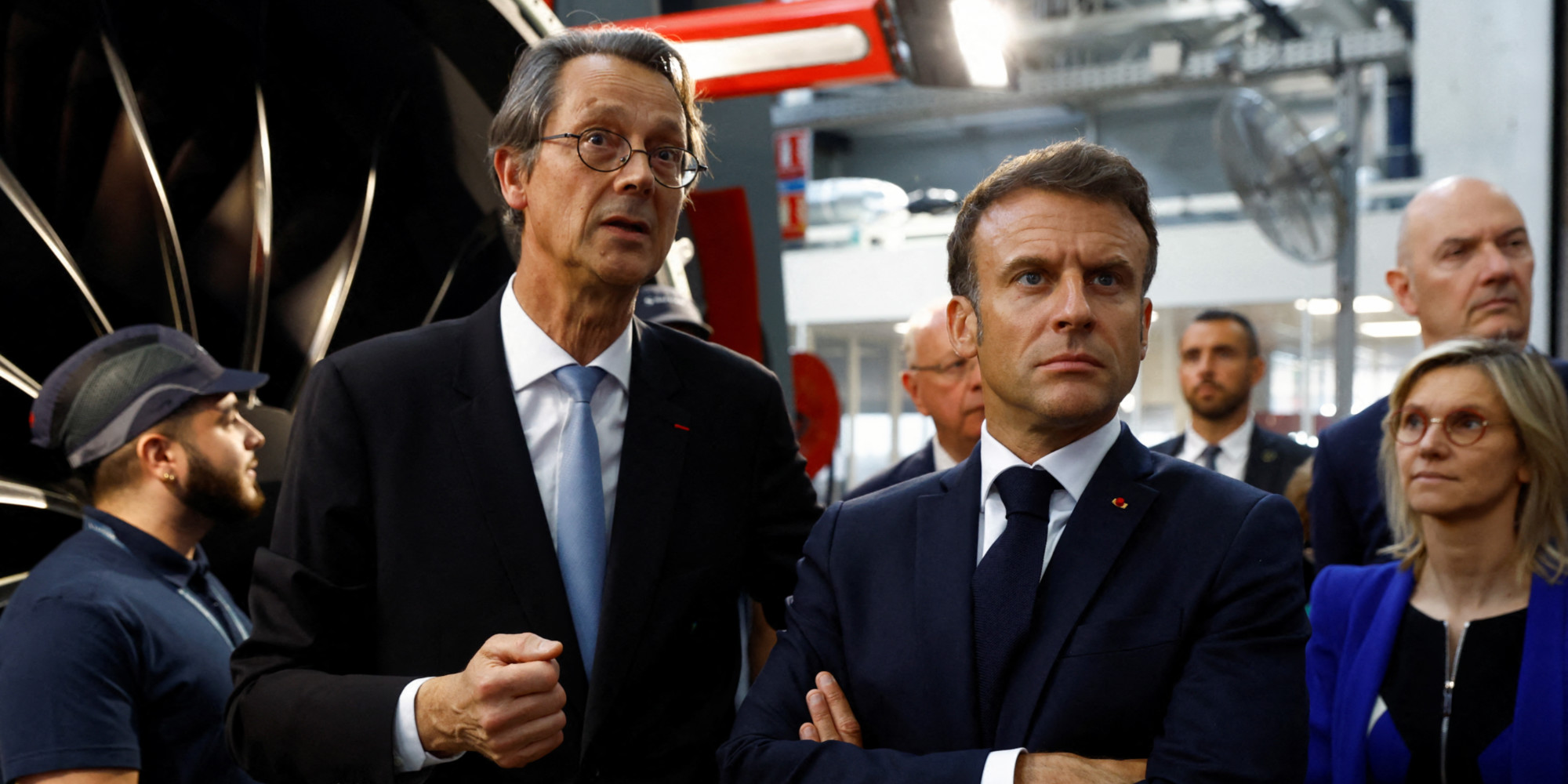Baptiste Morin with AFP / Photo credit: GONZALO FUENTES / POOL / AFP
modified to
7:17 p.m., June 16, 2023
Emmanuel Macron presented on Friday a plan of 2.2 billion euros to encourage the development of a “zero emission” aircraft in France and thus preserve a powerful aeronautical sector there in the face of the challenges of decarbonization. “We, the French, must be the champions of the ultra-low-energy aircraft (..) We have the means to be and to produce it”, launched the Head of State, visiting the site of the aeronautical engine manufacturer Safran in Villaroche in Seine-et-Marne, three days before the opening of the Paris Air Show, a major global meeting for the sector.
One out of two commercial aircraft sold in the world is designed by Airbus, particularly in France, and competition promises to be fierce between Europeans, Americans and Chinese to arrive first on the decarbonization market. To respond to this, the State will “triple its effort over the period 2024-2030”, i.e. “300 million euros per year”, in favor of the design of more fuel-efficient engines and aircraft designs, announced President. This presupposes in particular lightening the planes with new composite materials as well as new aircraft architectures. At the same time, the State will invest 200 million euros in the development of aviation biofuels in France, with the objective of producing 500,000 tonnes per year by 2030.
An aviation fuel plant in Lacq
A sustainable aviation fuel plant will notably be set up in Lacq in the Pyrénées-Atlantiques, “in a region that knows energy well”, said the Head of State, with reference to the famous Lacq gas field. It will create 700 direct jobs, ie 100 on the site and 600 in the recycling sector, by 2027, according to the Elysée. Led by Elyse Energy, an industrial SME pioneer in low-carbon molecules, and a consortium associating in particular TotalEnergies, the agri-food group Avril, specialized in oilseeds, and the German ThyssenKrupp, this BioTJet project represents an investment of 1 billion euros, said the partner companies in a press release.
The plant, which should come into service in 2028, will produce advanced biokerosene from biomass composed of residues mainly from local forestry and wood waste. It will make it possible to supply 75,000 tonnes of sustainable kerosene to airlines, i.e. 15% of French production by 2030. Produced from used oils, wood residues or algae, sustainable fuels (SAF) can be used in addition to kerosene . Existing production units in France currently only use used cooking oils and animal fats.
An envelope of 50 million euros for start-ups
In 2022, total SAF production worldwide was 250,000 tonnes, or less than 0.1% of the more than 300 million tonnes of kerosene used by aviation. The European Union wants to increase this share to 6% in 2030 and 75% in 2050. Emmanuel Macron also announced an envelope of 50 million euros for start-ups working on projects for small hybrid, electric or to hydrogen. The Head of State, determined to relaunch his five-year term after the pension crisis, has multiplied announcements in recent weeks on the reindustrialization and technological sovereignty of France.
The aeronautical industry represents nearly 3% of global greenhouse gas emissions. It is booming again after a collapse in its activity during the Covid-19 pandemic. Air transport should return this year to its level of activity before the Covid crisis, 4.5 billion passengers transported in 2019, and could double it by 2050. According to Airbus, the world fleet of aircraft should double in the next few years, to reach 46,000 aircraft in 2042. After halving energy consumption per passenger in 20 years, air transport will have to move towards carbon neutrality by 2050 in line with European policies.
